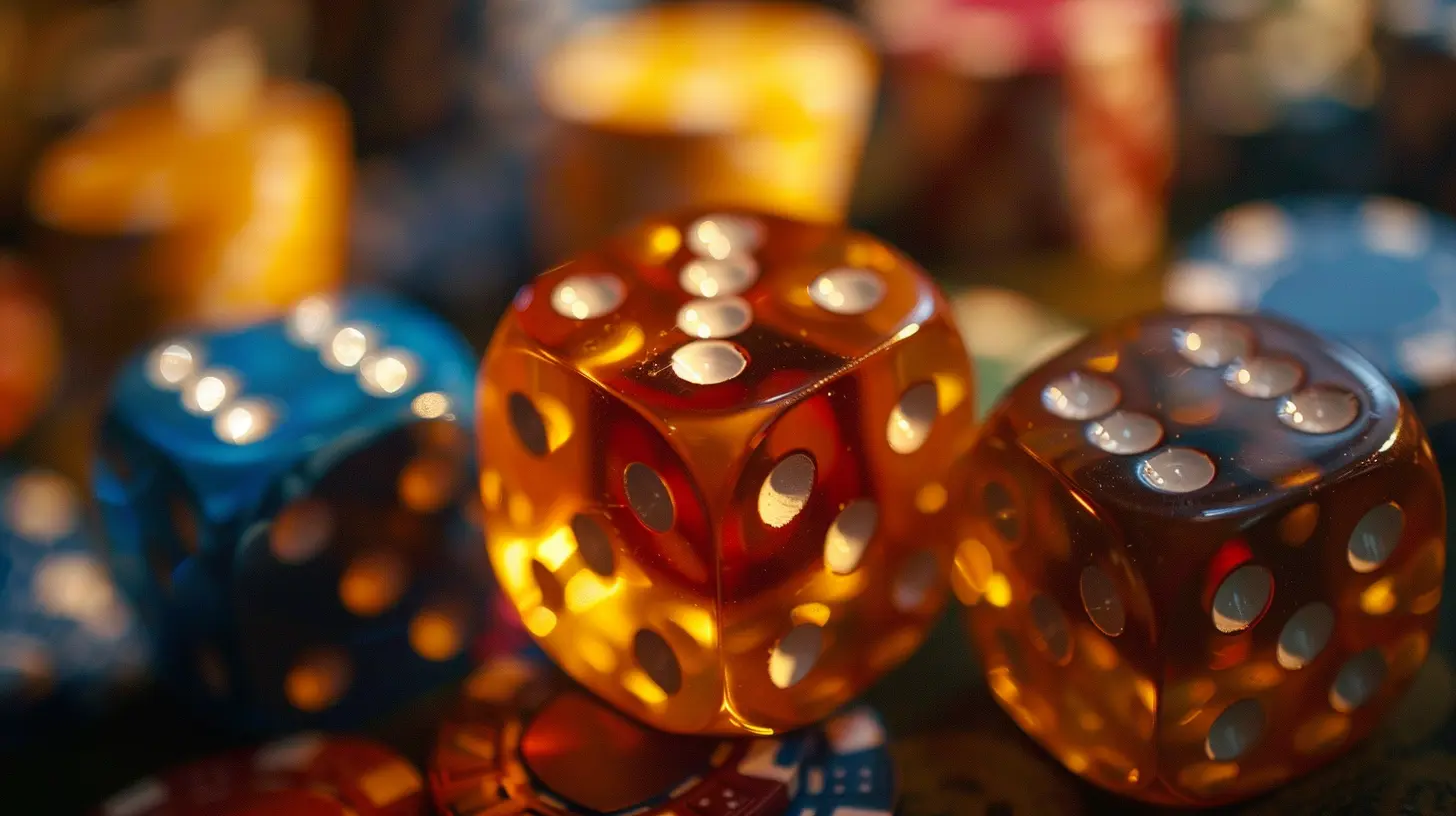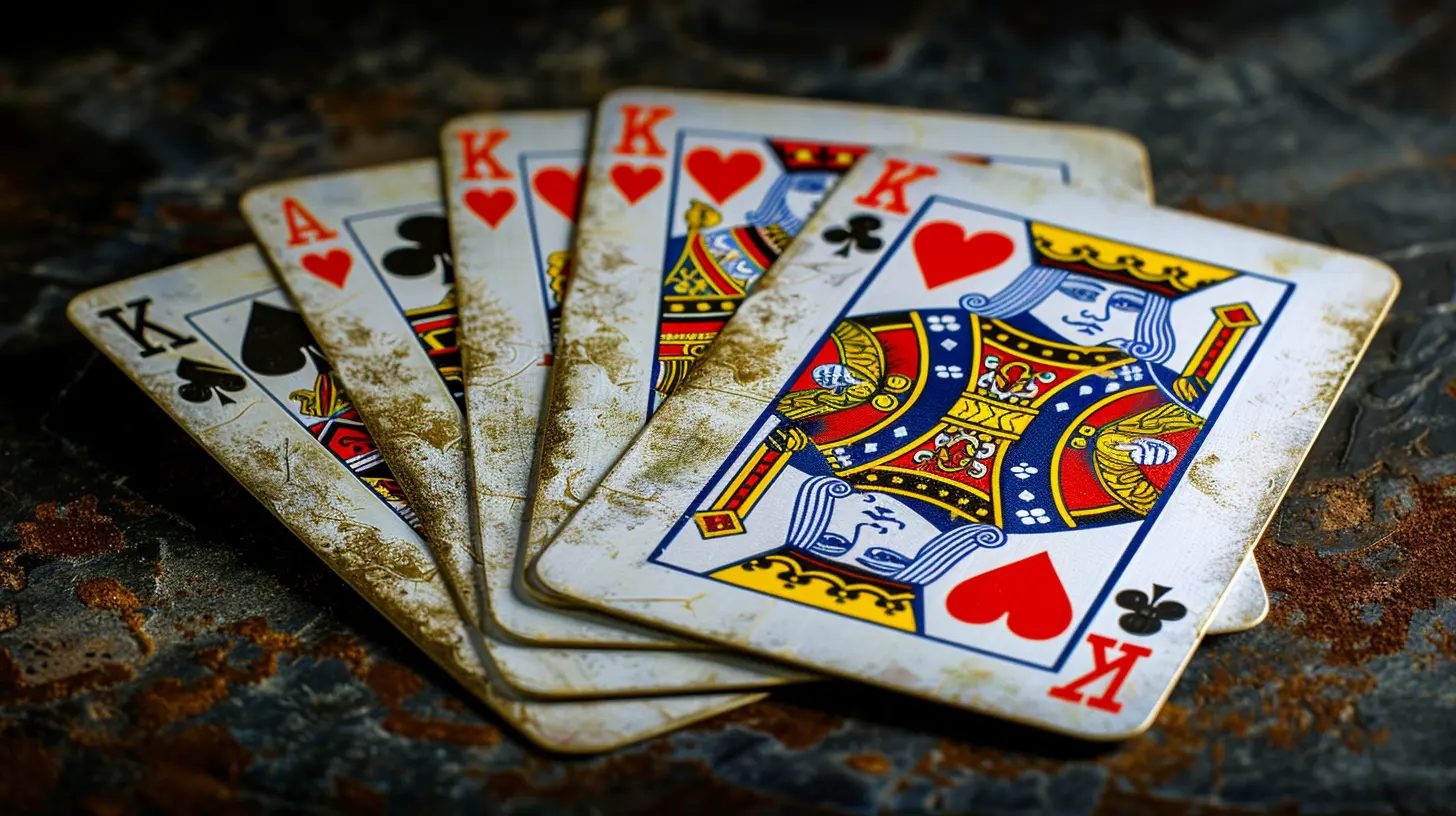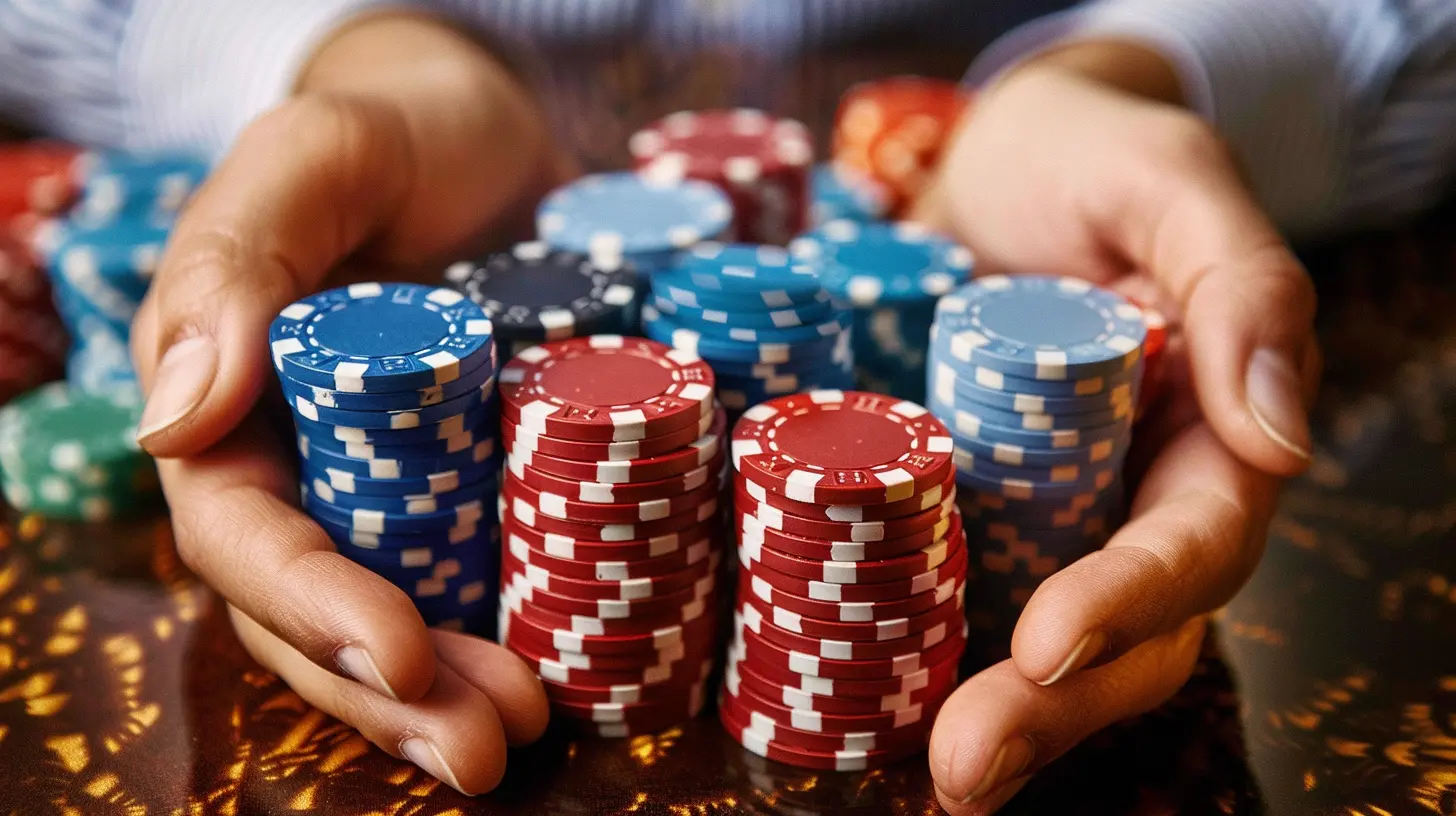How to Spot a Cheater in Card Games
31 July 2025
Card games have a long, rich history of fun, strategy, and friendly competition. But let’s face it — not everyone plays fair. Whether you're shuffling up for poker night with the crew or diving into a serious tournament, cheaters can creep in and suck the fun right out of the room. Spotting a cheater in a card game isn’t always easy, especially when they’ve mastered the art of subtlety. But don’t worry — we’ve got your back.
In this guide, we’ll walk you through the telltale signs of someone cheating during a card game. We’re not just talking about pulling cards from sleeves — we’re going deep into body language, card manipulation, and even psychological tricks. By the end, you’ll be sharp-eyed, skeptical, and ready to call out shady moves before they cost you the game.
Why People Cheat in Card Games
Before we jump into spotting the tricksters, let’s ask the big question — why do people cheat in the first place? For some, it’s greed. For others, it's pride. Sometimes, it’s just boredom. But whatever the reason, it's all about gaining an unfair edge.Here’s the kicker — cheaters often think they’re smarter than everyone else at the table. They think you’re too distracted or too inexperienced to notice. That arrogance? That’s exactly what we’ll use against them.
Common Methods of Cheating in Card Games
Knowing what to look for starts with knowing how people cheat. It’s like identifying a magician's trick — once you know the secret, it becomes obvious.1. Card Marking
Cheaters sometimes mark cards subtly using scratches, dots, or even tiny bends. They might use their fingernail or a bit of grease to mark a valuable card.Watch For:
- Players who seem unusually interested in picking up or touching cards more than necessary.
- Cards that look worn only in certain spots.
- Players who always know when to fold or bet big — a little too accurately.
2. Sleight of Hand
This is the classic “palm a card” trick or slipping an extra ace into the hand. Sleight of hand requires practice, but good cheaters are smooth and quick.Watch For:
- Hands that move too quickly or too often.
- Covering motions (like coughing or shifting in their seat) during critical moments.
- Players who insist on dealing — every single time.
3. Stacking the Deck
Some players manage to arrange or “stack” the deck during shuffling or dealing. It’s subtle and requires control throughout the shuffle.Watch For:
- Players who shuffle in odd or fancy ways constantly.
- Someone who cuts the deck themselves then insists you don’t re-cut.
- Suspicious patterns in repeated deals — like one player consistently getting good hands.
4. Peeking or Flashing Cards
This is when a cheater sneaks a look at another player’s cards or reveals theirs to an ally (collusion).Watch For:
- A player adjusting their seating or leaning at odd angles.
- Eye movement — watching your hands or your cards, not your face.
- Players who seem to “guess” your cards a little too accurately.
5. Collusion or Team Play
Sometimes, two players work together. They might give signals, share hands via slight gestures, or use pre-agreed signals like scratching a nose or tapping fingers.Watch For:
- Players who sit next to each other and rarely challenge each other.
- Non-verbal communication that seems consistent and rhythmic.
- One player folding conveniently when their "partner" places a big bet.
Non-Technical Signs of a Cheater
It’s not always about mechanics. Sometimes, cheaters give themselves away simply by acting weird or nervous. Human behavior is a beautiful mess — and cheaters do slip up.1. Inconsistent Gameplay
One minute they’re reckless, the next they’re cautious. Or they make bizarre plays that somehow always work out. If their choices don’t make sense but still pay off, it could be more than luck.2. Overconfidence or Cockiness
A cheater may act smug, overly confident, or even boastful. They think they’ve got the game on lock — and the ego gets palpable.3. Frequent Rule Challenges
A cheater may constantly question rules, try to change them mid-game, or challenge legitimate plays to throw others off.4. Unwillingness to Be Observed
They might shift to block your view, hunch over cards, or get defensive if someone suggests rotating the dealer or changing the view angle.
How to Confront a Suspected Cheater
Okay, say you’ve spotted some red flags. What now? Calling out a cheater can be tricky — especially if it's just a friendly game. But let’s not forget, honesty is the name of the game.1. Stay Cool
Don’t start throwing chairs and yelling, “You’re a fraud!” Stay calm. Ask questions. Sometimes, that’s all it takes to let someone know you're onto them.2. Ask for a Rule Check
Bringing up a rule and asking everyone for a consensus can throw a cheater off their rhythm. It’s a non-aggressive way to show you’re paying attention.3. Change the Setup
Switch dealers more often. Change seating. Shuffle differently. Sometimes, just removing their tools or comfort zone is enough to bring the cheating to a halt.4. Direct Confrontation (When Necessary)
If it’s repeated, blatant cheating — sit them down. Be respectful, but be firm. Especially in tournaments or higher-stakes games, you have every right to call for an official ruling.Ways to Protect Yourself from Cheaters
Prevention is better than cure, right? If you're hosting or playing regularly, here are some habits to keep the games clean and fun.1. Use Quality Equipment
Cheap, worn cards are easier to mark or manipulate. Use quality cards, cut cards, and if possible, card shufflers — mechanical or electronic.2. Rotate Dealers and Positions
Make it harder for anyone to gain consistent control over the deck. Rotate roles fairly and frequently.3. Establish Clear Rules
Make sure everyone knows the rules before the game starts. Cheaters love rule flexibility — nip it in the bud early.4. Encourage Transparency
Encourage players to keep hands visible, minimize distractions, and avoid unnecessary touching of cards.5. Observe Body Language
A lot of cheating signs come from behavior, not just cards. A twitchy demeanor, frequent eye movement, or odd patterns in betting can all be signs.The Psychology Behind Catching a Cheater
Want to go full Sherlock Holmes? Let’s take a peek into basic behavioral psychology. Understanding how people act when under pressure can help you identify someone who’s bluffing more than just their cards.1. Microexpressions
These are quick, involuntary facial expressions that reveal true emotions. Someone pulling a fast one might flash a guilty smirk or look away quickly.2. Defensive Reactions
If a player gets overly defensive or aggressive when a neutral question is asked (“Interesting how often you get those aces!”), it might hit closer to home than they want to admit.3. Sudden Behavior Changes
If a player shifts from chill and casual to paranoid and cagey — there’s a chance they’ve got something to hide.Famous Examples of Cheating in Card Games
Believe it or not, even pros have been caught. From marking cards in high-stakes poker to collusion scandals in bridge tournaments, no level is immune.Ever heard of the scandal involving a world champion bridge team using foot taps and coughs to signal cards? Or the infamous poker pro who used a tiny electrode to receive signals about his opponents’ hole cards? It happens — and sometimes in broad daylight.
Reading up on these cases can show you just how creative (and bold!) cheaters can be.
Final Thoughts: Trust Your Gut
At the end of the day, the best defense against cheaters is your gut. If something feels off — pay attention. You don’t need to go full detective mode on every shuffle, but staying aware and observant can save you from getting played.Card games should be about fun, strategy, and good vibes. Cheating has no place at the table. And now that you know what to watch for, you're one step ahead of anyone trying to game the game.
So next time you pick up your cards, keep your eyes sharp and your instincts sharper. Oh, and maybe don’t trust the guy who always “just happens” to win.
all images in this post were generated using AI tools
Category:
Card GamesAuthor:

Kaitlyn Pace
Discussion
rate this article
1 comments
Alyssa Graham
Great insights! It's fascinating how psychology plays a role in identifying cheaters. I wonder if there are universal signs across different card games, or if each game has its own unique tells? Looking forward to learning more about this!
August 15, 2025 at 4:44 AM

Kaitlyn Pace
Thank you! While some signs may be universal, many tells can vary by game due to different strategies and player dynamics. Stay tuned for more insights!


